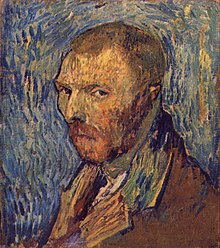Accusation
act of accusing or charging another with a crime or transgression
(Redirected from Accuse)
An Accusation is a statement by one person asserting that another person or entity has done something improper. The person who makes the accusation is an accuser, while the subject against whom it is made is the accused. An accuser can make an accusation with or without evidence and can even be a false accusation, made out of malice, for the purpose of harming the reputation of the accused. The perceived strength of an accusation is affected by the trustworthiness of the accuser.


Quotes
edit- Sorted alphabetically by author or source
- To accuse is so easy that it is infamous to do so where proof is impossible!
- Zoë Akins, Déclassé (1919), Act I.
- ACCUSE, v.t. To affirm another's guilt or unworth; most commonly as a justification of ourselves for having wronged him.
- Ambrose Bierce, The Cynic's Dictionary (1906); republished as The Devil's Dictionary (1911).
- The founders of the English laws have with excellent forecast contrived, that no man should be called to answer to the king for any capital crime, unless upon the preparatory accusation of twelve or more of his fellow subjects, the grand jury: and that the truth of every accusation, whether preferred in the shape of indictment, information, or appeal, should afterwards be confirmed by the unanimous suffrage of twelve of his equals and neighbours, indifferently chosen, and superior to all suspicion. So that the liberties of England cannot but subsist, so long as this palladium remains sacred and inviolate, not only from all open attacks, (which none will be so hardy as to make) but also from all secret machinations, which may sap and undermine it; by introducing new and arbitrary methods of trial, by justices of the peace, commissioners of the revenue, and courts of conscience. And however convenient these may appear at first, (as doubtless all arbitrary powers, well executed, are the most convenient) yet let it be again remembered, that delays, and little inconveniences in the forms of justice, are the price that all free nations must pay for their liberty in more substantial matters; that these inroads upon this sacred bulwark of the nation are fundamentally opposite to the spirit of our constitution; and that, though begun in trifles, the precedent may gradually increase and spread, to the utter disuse of juries in questions of the most momentous concern.
- William Blackstone Book IV, Ch. 27: Of Trial, And Conviction. (1765-1769)
- I've been accused of every death except the casualty list of the World War.
- Al Capone The Bootleggers.
- It is not uncommon for ignorant and corrupt men to falsely charge others with doing what they imagine that they themselves, in their narrow minds and experience, would have done under the circumstances of a given case, and the surest check, often the only check, on such perjury, is to recognize the impossibility that men of larger instruction and resources and experience could have been guilty of such conduct.
- John Hessin Clarke, Valdez v. United States, 244 U.S. 432, 450 (1917) (dissenting).
- Even doubtful accusations leave a stain behind them.
- Thomas Fuller, Gnomologia (1732).
- Trust me, no tortures which the poets feign,
Can match the fierce, the unutterable pain
He feels, who night and day, devoid of rest,
Carries his own accuser in his breast.- Juvenal, reported in William Gifford, The Satires of Decimus Junius Juvenalis (1806), p. 408.
- We must remember always that accusation is not proof and that conviction depends upon evidence and due process of law. We will not walk in fear, one of another. We will not be driven by fear into an age of unreason, if we dig deep in our history and our doctrine, and remember that we are not descended from fearful men — not from men who feared to write, to speak, to associate and to defend causes that were, for the moment, unpopular.
- Edward R. Murrow, in his famous See It Now broadcast focusing on McCarthy's tactics (9 March 1954)
- When a man points a finger at someone else, he should remember that four of his fingers are pointing to himself.
- Louis Nizer, My Life in Court (1961), p. 115.
- Let your accusations be few in number, even if they be just.
- Pope Sixtus I, The Ring (c. 120).
- Believe not each accusing tongue,
As most weak persons do;
But still believe that story wrong,
Which ought not to be true!- Richard Brinsley Sheridan, reported in Nicholas Harris Nicolas, The Carcanet: a Literary Album, Containing Select Passages from the Most Distinguished English Writers (1828), p. 132.
- Don't accuse anyone else.
- Vincent van Gogh, in statement to police before he died, as quoted in "The Life and Death of Vincent van Gogh" on 60 Minutes (16 October 2011), referring to evidence that Van Gogh had not committed suicide, presented in Van Gogh: The Life (2011) by Steven Naifeh and Gregory White Smith.
- Character assassination is a deliberate and sustained effort to damage the reputation or credibility of an individual by making false accusations, rumors, and manipulating information.
- Wikiquotes
- Qui s'excuse s'accuse.
- Who apologizes, accuses himself.
- Quoted by Wood, V.-C, Tichborne v. Tichborne (1867), 15 W. R. 1074; by Lord Bramwell, Derry v. Peek (1889), L. R. 14 Ap. Ca. 347.